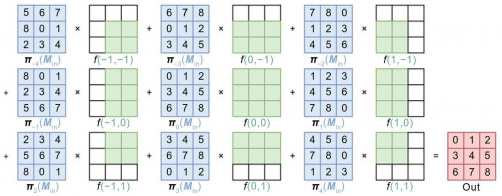BREAKING NEWS: A revolutionary method for secure neural network inference has been unveiled by a research team from Southeast University and Purple Mountain Laboratories. The study, titled “Efficient Privacy-Preserving Scheme for Secure Neural Network Inference“, promises to enhance data privacy dramatically amid growing concerns over cloud computing security.
In an age where smart devices and cloud services dominate, transmitting sensitive data in plaintext poses significant risks. Cloud servers can stealthily access user data, raising alarms regarding privacy and security. To combat this, the newly proposed scheme employs a combination of homomorphic encryption and secure multi-party computation, ensuring both user data and server models are protected during processing.
Key innovations within the scheme include a three-stage inference process: merging, preprocessing, and online. This structure streamlines operations significantly. Moreover, a novel network parameter merging technique has been introduced to minimize multiplication levels, drastically reducing the time and resources required for ciphertext-plaintext operations.
The research team, comprised of experts Liquan CHEN, Zixuan YANG, Peng ZHANG, and Yang MA, leveraged the CKKS homomorphic encryption algorithm for high-precision floating-point computations. Their innovative approach merges consecutive linear layers to cut down communication rounds and computational expenses while transforming convolution operations into matrix-vector multiplications to fully harness ciphertext slots.
Extensive testing on the MNIST and Fashion-MNIST datasets yielded impressive results, achieving 99.24% and 90.26% inference accuracy respectively. Compared to leading methods like DELPHI, GAZELLE, and CryptoNets, this scheme notably reduces online-stage linear operation time by at least 11%, online computational time by around 48%, and communication overhead by a staggering 66%, when set against non-merging approaches.
This breakthrough is poised to make a significant impact on how sensitive data is processed in cloud environments, addressing the urgent need for enhanced security in the digital era. As privacy concerns escalate globally, the implications of this research resonate deeply with users and organizations alike, providing a more secure means of operating neural networks.
The full study is available for review at this link. As the technology continues to develop, experts and stakeholders will be closely monitoring its implementation and potential real-world applications. Stay tuned for more updates on this groundbreaking advancement in data security.






